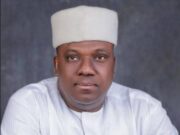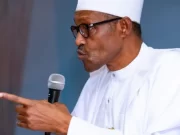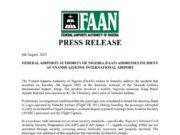Professor Nicholas Chika Ezeh, esteemed political economist, entrepreneur, and national deputy chairman (South) of the Police Community Relations Committee (PCRC), has publicly voiced deep condolences over the recent passing of former President Muhammadu Buhari (1942–2025). In a statement issued this week in Abuja, he celebrated Buhari’s unwavering dedication to national unity, fiscal discipline, and anti-corruption.

According to Prof. Ezeh, Buhari’s leadership—spanning over eight years—was marked by a disciplined approach to governance. “President Buhari was a steadfast guardian of Nigeria’s integrity,” he asserted. Ezeh spotlighted achievements in anti-corruption, improved security infrastructure, and economic stabilization following the turbulent global oil-price collapse of 2015–2016. He also praised the former leader’s role in forging regional alliances, reinforcing Nigeria’s diplomatic influence across West Africa.

Drawing from his own experience leading the PCRC, Ezeh emphasized Buhari’s commitment to strengthening police–community relations. “Under President Buhari, community policing initiatives expanded across all 36 states and the FCT, improving security engagement at the grassroots,” he said, echoing the national sentiment of unity and collaboration in maintaining peace.
Reflecting on Buhari’s long history as a soldier-turned-president, Ezeh underscored the lasting institutional reforms initiated during his administration. From the revamping of the Financial Intelligence Unit and Treasury Single Account systems to bolstering border control frameworks, Ezeh anticipates these reforms will continue shaping Nigeria’s path toward transparency and accountability.
He also recognized Buhari’s support for technological innovations and economic diversification, including the national push toward fintech and digital agriculture—efforts that, Ezeh believes, will yield dividends for Nigeria in the decades to come.
These sentiments mirror those expressed across public and diasporic spheres. A diaspora advocacy group praised Buhari for “restoring dignity” to Nigeria’s international profile, while analysts highlighted the introduction of the Treasury Single Account and the Crack Nigeria’s Technological Advancement Programme as strides toward fiscal responsibility.
Ezeh closed with a hopeful message: “President Buhari’s commitment to nationhood, good governance, and discipline must guide both current and future leaders.” He urged Nigerians to honor his memory by sustaining the institutional values he championed.


























